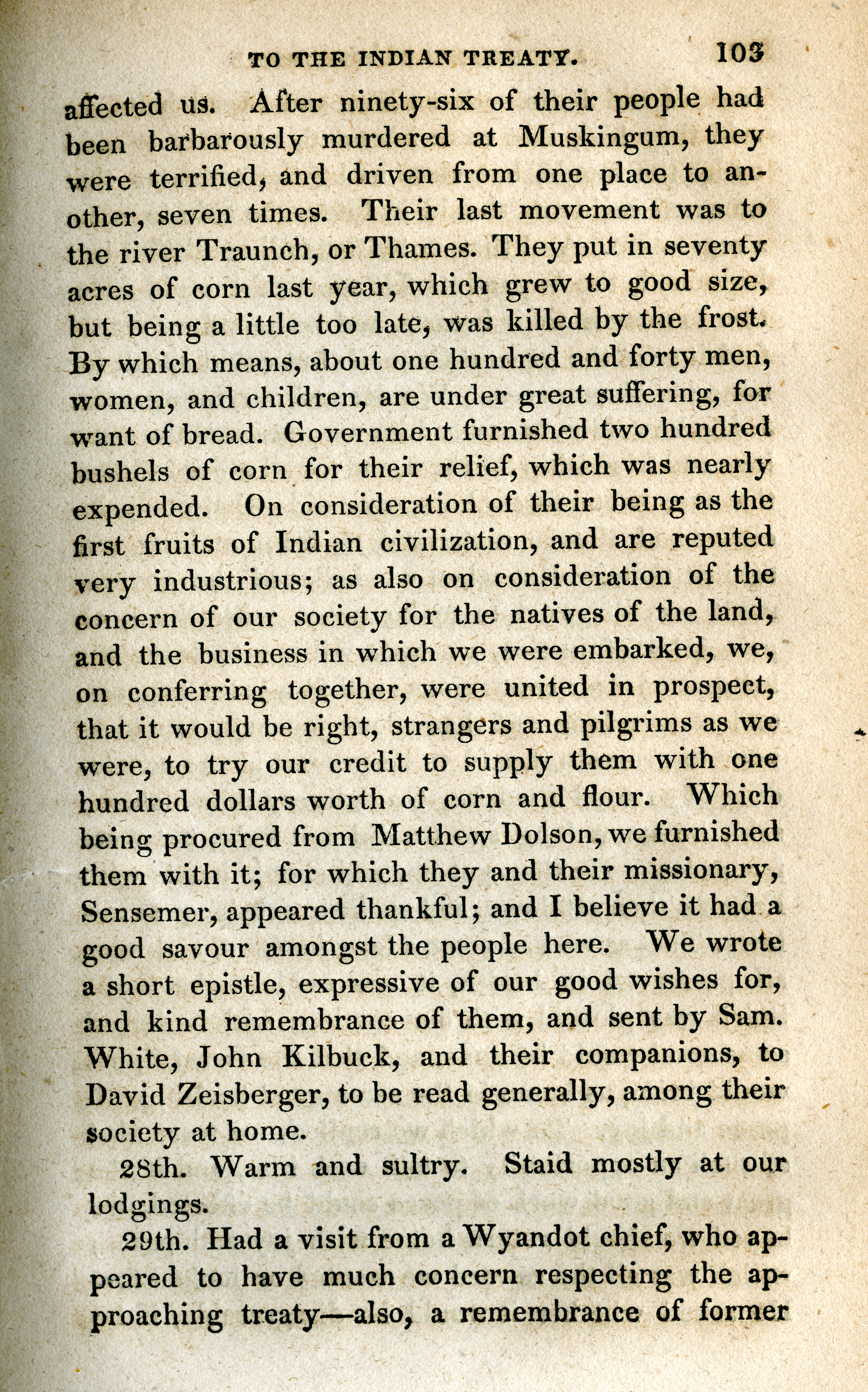affected us. After ninety-six of their people had
been barbarously murdered
at Muskingum, they
were terrified, and
driven from one place to an-
other, seven times. Their last movement was
to
the river Traunch, or Thames. They put
in seventy
acres of corn last year, which grew to good size,
but being
a little too late, was killed by the frost.
By which means, about one
hundred and forty men,
women, and children, are under great suffering,
for
want of bread. Government furnished two hundred
bushels of corn
for their relief, which was nearly
expended. On consideration of their
being as the
first fruits of Indian civilization, and are reputed
very
industrious; as also on consideration of the
concern of our society for the
natives of the land,
and the business in which we were embarked, we,
on conferring together, were united in prospect,
that it would be right,
strangers and pilgrims as we
were, to try our credit to supply them with
one
hundred dollars worth of corn and flour. Which
being procured from
Matthew Dolson, we furnished
them with
it; for which they and their missionary,
Sensemer, appeared thankful; and I believe it
had a
good savour amongst the people here. We wrote
a short epistle,
expressive of our good wishes for,
and kind remembrance of them, and sent
by Sam.
White, John
Kilbuck, and their companions, to
David Zeisberger, to be read generally, among
their
society at home.
Had a visit from a Wyandot chief, who ap-
peared to have
much concern respecting the ap-
proaching treaty — also, a remembrance of
former

